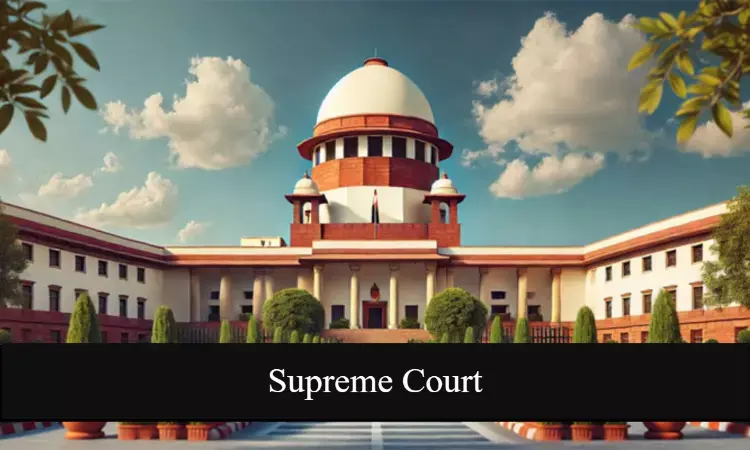- Home
- Medical news & Guidelines
- Anesthesiology
- Cardiology and CTVS
- Critical Care
- Dentistry
- Dermatology
- Diabetes and Endocrinology
- ENT
- Gastroenterology
- Medicine
- Nephrology
- Neurology
- Obstretics-Gynaecology
- Oncology
- Ophthalmology
- Orthopaedics
- Pediatrics-Neonatology
- Psychiatry
- Pulmonology
- Radiology
- Surgery
- Urology
- Laboratory Medicine
- Diet
- Nursing
- Paramedical
- Physiotherapy
- Health news
- Fact Check
- Bone Health Fact Check
- Brain Health Fact Check
- Cancer Related Fact Check
- Child Care Fact Check
- Dental and oral health fact check
- Diabetes and metabolic health fact check
- Diet and Nutrition Fact Check
- Eye and ENT Care Fact Check
- Fitness fact check
- Gut health fact check
- Heart health fact check
- Kidney health fact check
- Medical education fact check
- Men's health fact check
- Respiratory fact check
- Skin and hair care fact check
- Vaccine and Immunization fact check
- Women's health fact check
- AYUSH
- State News
- Andaman and Nicobar Islands
- Andhra Pradesh
- Arunachal Pradesh
- Assam
- Bihar
- Chandigarh
- Chattisgarh
- Dadra and Nagar Haveli
- Daman and Diu
- Delhi
- Goa
- Gujarat
- Haryana
- Himachal Pradesh
- Jammu & Kashmir
- Jharkhand
- Karnataka
- Kerala
- Ladakh
- Lakshadweep
- Madhya Pradesh
- Maharashtra
- Manipur
- Meghalaya
- Mizoram
- Nagaland
- Odisha
- Puducherry
- Punjab
- Rajasthan
- Sikkim
- Tamil Nadu
- Telangana
- Tripura
- Uttar Pradesh
- Uttrakhand
- West Bengal
- Medical Education
- Industry
Dying declaration before doctor cannot be ignored merely because of minor discrepancies: Supreme Court

SC
New Delhi: The Supreme Court has upheld the Gujarat High Court order of life imprisonment in a 2004 alleged murder case, observing that a dying declaration given by the deceased before a medical professional and supported by the postmortem report, cannot be overlooked “merely because there are minor discrepancies in the version given by the prosecution witness about the dying declaration.”
A bench of Justice Rajesh Bindal and Justice Vipul M. Pancholi rejected an appeal challenging the Gujarat High Court’s order, which set aside a trial court’s order against the conviction of the appellant for murder under Section 302 of the Indian Penal Code (IPC).
The case pertains to the murder of a woman, where the witness stated that the appellant, her relative, had entered into a criminal conspiracy to kill the deceased and her son, who were sleeping in their hut. The appellant/accused poured kerosene upon her and set her ablaze. As a result, she received severe burn injuries, and she was taken to the Civil Hospital, Palanpur. On 04.12.2004, she succumbed to the injuries, and her son received burn injuries to the extent of 10 to 12%.
Based on the complaint, the investigating officer carried out the investigation, the statements of the witnesses were recorded, the evidence was collected, and thereafter the charges were framed for offences punishable under Sections 302, 307, 436, 34, 120 (b) of the IPC and Section 135 of the Bombay Police Act,1951. The Trial Court acquitted both the accused persons, mainly on the ground that there are discrepancies in three dying declarations given by Leelaben, the deceased.
The State of Gujarat challenged the order of acquittal by filing a Criminal Appeal before the High Court. The High Court set aside the order of acquittal passed by the concerned trial court and convicted the appellant/accused for committing the offence punishable under Section 302 of the Indian Penal Code, 1860 (hereinafter referred to as “the IPC”) and sentenced with imprisonment for life and a fine of ₹ 10,000/-, and in default to further undergo simple imprisonment of one month.
Learned Counsel appearing for the appellant mainly contended that the case of the prosecution rests primarily on the dying declaration given by the deceased. However, there are major discrepancies in the three dying declarations. However, the counsel for the state contested that in the case of multiple dying declarations, each dying declaration will have to be considered independently on its own merit as to its evidentiary value, and one cannot be rejected because of the contents of the other. It is further submitted that from the postmortem report and severe burn injuries sustained by the deceased, almost all over the body, and the manner in which the burn injuries were caused, would reveal that it was not the case of an accidental death.
After considering the submission, the bench observed that documentary evidence was duly proved as per the testimony of the doctor. It is also specifically stated by the doctor that the patient was conscious and she was in a position to speak. “At this stage, it is also relevant to observe that the Medical Certificate of the deceased also states that the whole body and clothing had kerosene-smelling burns about 100%,” stated the bench.
The court stated, “We are of the view that merely because there are minor discrepancies in the version given by the prosecution witness with regard to the dying declaration and with regard to the manner of occurrence of the incident, the first dying declaration given by the deceased before the independent witness cannot be ignored. The first dying declaration is supported by the independent documentary evidence, and therefore, the High Court has rightly placed reliance upon the decision rendered by this Court.”
To view the official order, click on the link below:
Sanchari Chattopadhyay has pursued her M.A in English and Culture Studies from the University of Burdwan, West Bengal. She likes observing cultural specificities and exploring new places.




